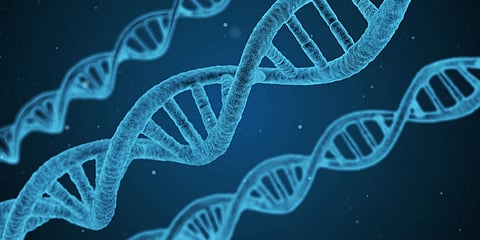

Researchers at IIT Madras have developed an Artificial Intelligence-based Mathematical Model to identify cancer-causing alterations in cells. Utilising a rarely-used technique to discover patterns in the DNA sequences, the algorithm is able to pinpoint genetic alterations responsible for cancer progression.
Led by Prof B Ravindran, Head, RBCDSAI, and Mindtree Faculty Fellow IIT Madras and Dr Karthik Raman, Faculty Member, Robert Bosch Centre for Data Science and AI (RBCDSAI), IIT Madras, the research has overcome the major challenge of differentiating between the relatively small number of ‘driver’ mutations that boost the growth of cancer cells from the benign ‘passenger’ mutations. The experiments were conducted by Shayantan Banerjee, a Master’s student at IIT Madras, who also analysed the data. The results have been recently published in the peer-reviewed international journal, Cancers.
The researchers claim that the study, which helps understand the processes behind the alterations in mutating cancer cells, has the potential to help further ‘precision oncology’, which provides personalised treatment to patients based on their genetic make-up. Dr Karthik also claimed that detecting rare driver mutations can also help in early diagnoses.
Following the hypothesis that the alteration patterns would be unique to drivers and passengers, the researchers deployed AI techniques that created a prediction algorithm, called NBDriver, that was modelled mathematically to differentiate between the two types. The technology has been made publicly available to obtain predictions on mutations.
“Our model could distinguish between well-studied drivers and passenger mutations from cancer genes with an accuracy of 89%. Furthermore, combining the predictions from NBDriver and three other commonly used driver prediction algorithms resulted in an accuracy of 95%, significantly outperforming existing models,” Dr Ravindran said.
Dr Karthik added, “Interestingly, NBDriver could accurately identify 85% of the rare driver mutations from patients diagnosed with Glioblastoma Multiforme (GBM), a particularly aggressive type of cancer affecting the brain or spine.”
